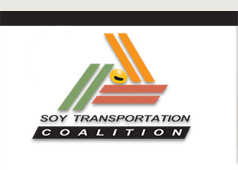 |
 |
|
| eNews • November 2015 | ||
| Promoting a Cost-Effective, Reliable and Competitive Transportation System |
||
 Semi weight limit amendment falls short in the House
Semi weight limit amendment falls short in the House
On November 3rd, during floor debate of Surface Transportation Reauthorization Act (ââ¬Å"the Highway Billââ¬Â), the House of Representatives voted to defeat the ââ¬Å"Safe Trucking Actââ¬Â amendment proposed by Congressman Reid Ribble (R-WI) that would have allowed states to permit 6 axle, 91,000 lbs. semis on their interstate system. The final vote was 187 ayes, 236 nays, and 10 who did not vote. The vote by party affiliation was as follows:
ââ¬Â¢ Republicans voting in support: 168 ââ¬Â¢ Democrats voting in support: 19 ââ¬Â¢ Republicans voting to oppose: 74 ââ¬Â¢ Democrats voting to oppose: 162
To access how each individual Member of Congress voted on the measure, the full results can be found at: http://clerk.house.gov/evs/2015/roll588.xml.
ââ¬Å"While the Ribble amendment enjoyed the benefit of compelling facts, data, and statistics on motorist safety, infrastructure wear and tear, and cost savings and efficiency gains for agriculture and the broader economy, many opponents of the legislation simply conveyed to Members of Congress that ââ¬Å"bigger semis are more dangerous,ââ¬Â explains Mike Steenhoek, executive director of the Soy Transportation Coalition. ââ¬Å"The inherent challenge for supporters of this amendment is that we needed to explain and persuade. Opponents, in many cases, simply needed to frighten and confuse.ââ¬Â
According to Steenhoek, ââ¬Å"Observing this process is also one more reminder of how an increasing percentage of members of the House represent districts that do not produce or manufacture products - whether agriculture or otherwise. While these highly urban districts are strongly impacted by the efficiency, or lack thereof, of our nationââ¬â¢s freight transportation system, many of the representatives of these districts rarely, if ever, are encouraged by a constituent - whether an individual, organization, or business - to support a concept like the Ribble amendment that was designed to safely and responsible increase our freight capacity. As a result, the path of least resistance for many of these representatives is to not support such a measure.ââ¬Â
Despite these challenges, supporters were motivated to proceed with promoting the amendment given how it was one of those opportunities to make the logistics chain more economical while improving motorist safety and decreasing road wear and tear.
ââ¬Å"If the amendment would have passed and been signed into law, the movement of soybeans, grain, and many other freight would have been more efficient,ââ¬Â Steenhoek said. ââ¬Å"Farmer competitiveness would have increased. Unfortunately, a majority in Congress did not embrace that opportunity.ââ¬Â
Soy Transportation Coalition |
|
